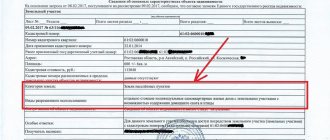Specialists from the Federal Cadastral Chamber explained in detail how to convert a garden house into a residential one. From the point of view of the law, a garden house differs from a residential one in three ways:
- you can live in a residential building all year round, but in a garden building - only during the gardening season;
- You can register in a residential building, but not in a garden building.
- In a residential building, electricity is much cheaper - you can switch to a rural tariff, which you cannot do in a country house.
The latter circumstance makes us think about converting the dacha into a residential building even for those who visit it occasionally.
Is it profitable to register a country house as a garden house?
Previously, the owners came to the cadastral engineer and registered their house, indicating in the declaration that it was uninhabited. The advantage was this: you don’t have to pay tax. Previously, it was not possible to register in SNT, and therefore, what difference does it make, the owners reasoned.
Today the situation has changed, it is better to register a house as a residential one for cadastral registration:
- It is possible to register in a residential building, but not in a garden building;
- Utility payments in some regions for non-residential buildings are higher than for residential ones.
- To transfer an already registered house from non-residential to residential, you need to invite experts and apply to the local administration for permission.
For those who have registered a house as non-residential and now want to register in it, an article on the topic: “How to transfer a house from non-residential to residential.”
Which house can be converted into residential
But, of course, not every garden house can be converted into a residential building, but only one that meets all the characteristics of a permanent structure. Such a structure must have a foundation; it must be impossible to move from place to place without being destroyed; it must be equipped with running water, electricity, ventilation, heating, etc. In places where centralized utility networks are laid, water, gas and sewerage must be supplied from them. In areas where there are no centralized engineering networks, there may be no water supply and connection to the central sewerage system - the house will still be considered permanent.
If the area in which the house is located is not gasified, the building must be heated with electricity or solid fuel: the main thing is that in all residential premises it should not be colder than +18 degrees.
But this is not the entire list of requirements. It is also necessary that all structural elements of the building be reliable (especially the roof and load-bearing walls), that there are windows in all rooms and the kitchen, that the height of these rooms from floor to ceiling is at least 2.5 meters, and that the height of the corridors and attic is at least 2.1 meters.
A permanent structure must have a BTI technical passport and other permits in accordance with urban planning and building codes. In no case should the VRI of the site be “conducting gardening”, only “conducting gardening”.
Why is it more profitable to register a house as a residential one?
Owners of dachas throughout Russia, and especially in New Moscow, who have registered their house as residential, benefit significantly when selling their dacha. Buyers especially carefully pay attention to the possibility of registration in houses, and especially value Moscow registration. It is known that apartments in the capital are expensive and not everyone can afford them. Houses in the SNT of new Moscow can be bought at an affordable price. Pensions and benefits for the capital's residents are higher than in neighboring regions, hence the demand for summer cottages with residential buildings.
You can sell a dacha plot with a registered residential building for more money. If the house is registered as non-residential or is not registered at all in the cadastral register, the buyer will demand a reduction in value due to the fact that he will have to draw up all the documents himself.
Subtleties of the procedure
The owners are often stopped from legally transferring a garden house into a residential building by fear of new taxes and reluctance to go through long bureaucratic fuss. But the Cadastral Chamber says that the entire procedure takes on average only two to three months (about 45 days of which will take approval of the application at the local mayor’s office), and you will not have to pay new taxes. If the garden house is really capital, then you can safely collect documents and take them to the local government body on whose territory the gardening partnership is located or to the district MFC. Here is the list of required documents:
Statement. There is no form for such an application, it is arbitrary, the main thing is that the cadastral number of the house and the cadastral number of the plot on which it is located, and your address (postal and email) are indicated. You also need to indicate how you want to receive an answer from the mayor’s office about whether your garden house will be converted into a residential one or not. You can send it by mail with a notification, you can send it by e-mail, you can pick it up at the MFC or at the relevant department of the city hall.
- Standard extract from the Unified State Register of Real Estate. If the garden house is not registered as a property, then the title document or a copy thereof certified by a notary.
- Conclusion of a cadastral engineer on the technical condition of the house. At FORUMHOUSE we described in detail what kind of engineer can be hired for cadastral work and where to look for him.
- If the dacha has several owners, you will also need their consent, also certified by a notary.
This is all that is required from the owner: then the administration will consider the application and documents and make a decision: we remind you that according to the law they must be completed within 454 days. If the decision is positive, a corresponding letter will be sent to the owner of the house. The mayor's office also sends this decision to the registration authorities itself. But in practice, sometimes it turns out that it is faster and easier to contact the Rosreestr for entering information into the Unified State Register of Real Estate yourself.
Is it possible to register in an unfinished house?
Sometimes citizens can claim real estate in the form of an unfinished house. Moreover, it can be unfinished either in fact or only according to documents, since all the important work has been completed and communications are there, it just has not been put into operation. And this is precisely the key point - if a house is not put into operation, it cannot be considered residential, and accordingly there is no way to register in it. The law only allows the sale of an unfinished house, subject to registration of ownership of the unfinished house.
List of documents
To register on a permanent basis, you will need to provide a number of documents, the list includes:
- statement;
- passport and its copy (if a minor is registered, a birth certificate is used instead);
- confirmation of ownership of real estate;
- if it is not the owner who is registering, the owner’s permission or a court order to move in.
As for the temporary one, instead of confirming ownership rights, you will need permission from the owner of the property, as well as documentary evidence of the basis - for example, a lease agreement.
Registration in a house with shared ownership
If a private house is owned by a citizen on the basis of shared ownership, the difference during registration will be that you will have to obtain consent from other owners.
Do you need the consent of other owners?
In the usual case, yes, you will need to secure it from each owner who owns a share in the house.
Methods and procedure for submitting documents
The design mechanism will depend on which method is chosen - and there are several of them:
- contacting the passport office;
- to the passport officer at the management company;
- through a multifunctional center;
- registration through State Services.
Let us briefly examine the listed methods.
Registration through the passport office and through the management company are not much different: the only difference here will be where to go with the documents. You will need to fill out an application for registration on site. Those liable for military service will receive an apartment card - it will need to be taken to the military registration and enlistment office, and then returned with a note from the military commissar about registration.
When all the documents have been prepared, the date of issue will be set: if an extract has already been issued from the previous place of residence, then the process will take no more than three days, otherwise it may take a week or two.
When contacting the MFC, you will also need to provide all the necessary papers, however, documents on ownership will not be required: then information about this will be requested by the center’s employees in Rosreestr. Although, if you present them, the registration will go faster.
Otherwise, everything is the same as in previous cases, which is not surprising, because the MFC in this case will act only as an intermediary, and the registration itself will be carried out by the Ministry of Internal Affairs.
Registration through the State Services website differs from previous options primarily in that it is carried out online.
The application is submitted through the website, for which you need to be registered on it. If for some reason it is inconvenient for you to contact the passport office or other place of registration in person, for example, due to inappropriate working hours, then State Services will be the best option even if you do not have a registered account, because you need to register it once, and you can use it in a variety of cases.
If you are already a registered user, then everything is simple, and it will take no more than ten minutes to submit an application, which significantly saves time compared to a personal visit.
You need to do the following:
- go to the portal www.gosuslugi.ru;
- select the desired service;
- fill out and submit the application;
- After registration is completed, a message about this will be sent to your personal account indicating the time at which you will need to visit the Ministry of Internal Affairs department.
As you can see, you still won’t be able to do without going to the department completely, but you will only have to do it once, and not twice, as in the usual case.
Registration Features
According to the law, a citizen must have permanent or temporary registration.
The first is also called registration at the place of residence, and the second - at the place of stay. The specifics of this procedure are regulated by the following legislative acts:
- Federal Law No. 5242-1 - indicates the need to obtain one of the listed types of registration for a citizen.
- Government Decree No. 713 - describes the mechanism by which it is formalized.
- Code of Administrative Offences, Article 19.15 – on administrative liability for unregistered registration.
- Criminal Code, Article 322.23 – on criminal liability when a fictitious registration is detected.
Both permanent and temporary registration have their own characteristics.
At the place of residence
Registration is issued at the citizen’s permanent residence address. To register it in a private house, as in the usual case, you will need to go to the passport office, taking with you the required documents.
You can have only one permanent registration at a time, which means that if you have one, you will need to cancel it. If the deregistration has already occurred, you will need to apply for a new registration no later than seven days later. If a citizen has not been discharged, then he can apply at any convenient time, and will be discharged simultaneously with the registration of a new registration.
By place of stay
It is issued if a citizen stays in a locality for more than three months and does not have permanent registration in it. Peculiarities:
- has an expiration date, and when it arrives, the citizen is automatically deregistered;
- is not included in the passport; instead, a certificate of temporary registration is issued;
- upon receipt there is no need to cancel the permanent one - they can act simultaneously;
- gives the right to use the services of government agencies to the same extent as a permanent one.
In general, it is worth noting that temporary registration is of a notification nature and only gives the right to reside in the premises in which it was registered. However, for living for more than 90 days in a populated area without registration, according to Article 19.15 of the Administrative Code, a fine is imposed, both for the citizen living without registration (2,000 - 3,000 rubles) and for the owner of the apartment (2,000 - 5,000 rubles ).
During the entire period of validity, the tenant will be responsible for paying utilities and complying with the rules of cohabitation on an equal basis with other tenants.








